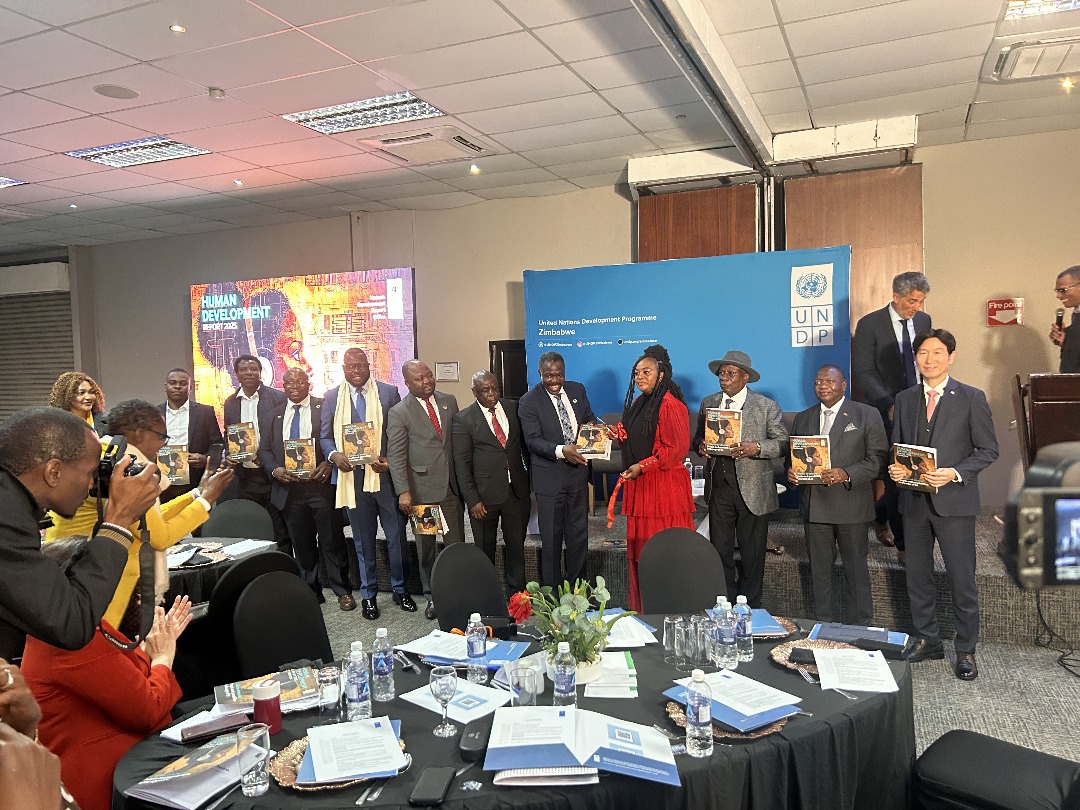There’s no stopping Artificial Intelligence (AI), or so it appears. However, as it races ahead, it appears people may be falling behind.
That’s the main thing you will get from the 2025 Human Development Report (HDR) released by the UNDP. It’s titled “A Matter of Choice: People and Possibilities in the Age of AI”, and it’s basically saying this:
AI isn’t destiny, it’s a decision. And so far, most of us aren’t making the right one.
As the Zimbabwean government publicly welcomes AI, hosting conferences and talking to startups, this report, even with its more global scope as opposed to being about just Zimbabwe, leaves us with this question:
Are we using AI to move our people forward, or just to distract from the fact that they’re being left behind?
Now, full disclosure, I haven’t gone through the full thing just yet, but dug into the areas that were highlighted by UNDP National Economist and Head of Prosperity, Ethel Bangwayo when she gave a presentaion on the key findings of the report.
People want AI, even in low-income countries
The report includes a surprising stat: Two-thirds of people in low- and middle-income countries expect to be using AI within a year, in education, health and work.
It clearly shows Zimbabwe and its peers aren’t waiting around. We expect to use AI in a year even more than very high human development index (HDI) countries.
So, whether it’s WhatsApp bots, AI customer service tools, or even students sneaking ChatGPT into homework, adoption is already happening.
I don’t know why this suprised me because of all the things I’ve ever done for my mother, she seems to be most thankful for when I introduced her to ChatGPT and how it helps her be more productive.
But the thing is, just because AI is being used doesn’t mean development is happening.
Human development is stagnant even as tech grows
Since the pandemic, human development scores have flatlined or even dropped. Meanwhile, AI’s capabilities, and risks, have increased.
These charts might go over heads but one chart shows how global human development progress slowed down after the pandemic and how lower-income countries like Zimbabwe are falling further behind. AI is moving fast, but people aren’t.
The report therefore shows that the gap between what’s possible and what’s happening is growing wider.
For Zimbabwe, where digital infrastructure is still a challenge and the education system still struggles to deliver basic skills, this gap is even more dangerous.
AI speaks English and mostly to Western values
AI systems like ChatGPT were trained mostly on English data, and the report confirms they tend to reflect Western worldviews. I don’t think you needed the report to know this, we have all seen this. That has cultural consequences.
When AI gives you answers, they may not reflect your values, your language, or your reality.
Zimbabwe is not just underrepresented in the data, it’s not even in the conversation. And that’s a problem when AI is increasingly used in decision making.
This chart shows how people in different countries relate to the way ChatGPT thinks and talks.
Because ChatGPT was mostly trained on American and Western data, its answers reflect U.S. values, tone, and reasoning.
Zimbabwe appears far from the U.S. on this chart, meaning the way ChatGPT communicates and makes judgments may often feel culturally off or disconnected for Zimbabweans.
Infrastructure is still the challenge
None of this matters if you can’t get online. And in many parts of Zimbabwe, basic internet access is still a challenge. That’s before we even talk about the cost and power of the devices we’re expected to use.
Countries with lower HDI also lack the basic ingredients to benefit from AI (education, digital readiness, economic complexity).
The report is clear about it, unless countries invest in this infrstructure stuff, AI will reinforce inequality, not reduce it. Even when we talked a bit about the report on social media yesterday, many of the comments were along the lines of:
Zimbabwe doesn’t need more AI conferences. It needs affordable, reliable internet in every school, village and clinic.
So, what do we do?
The report doesn’t say we should just give up. It says AI is still just a tool. It can be shaped to include us, or to leave us behind. The difference will come down to what we choose to do now.
The challenge goes something like:
Will Zimbabwe build an AI future that helps its people thrive, or one that just sounds good in keynote speeches?
Want to see for yourself?
You can download the full Human Development Report here:
UNDP Human Development Report 2025 PDF

Leave a Reply Cancel reply